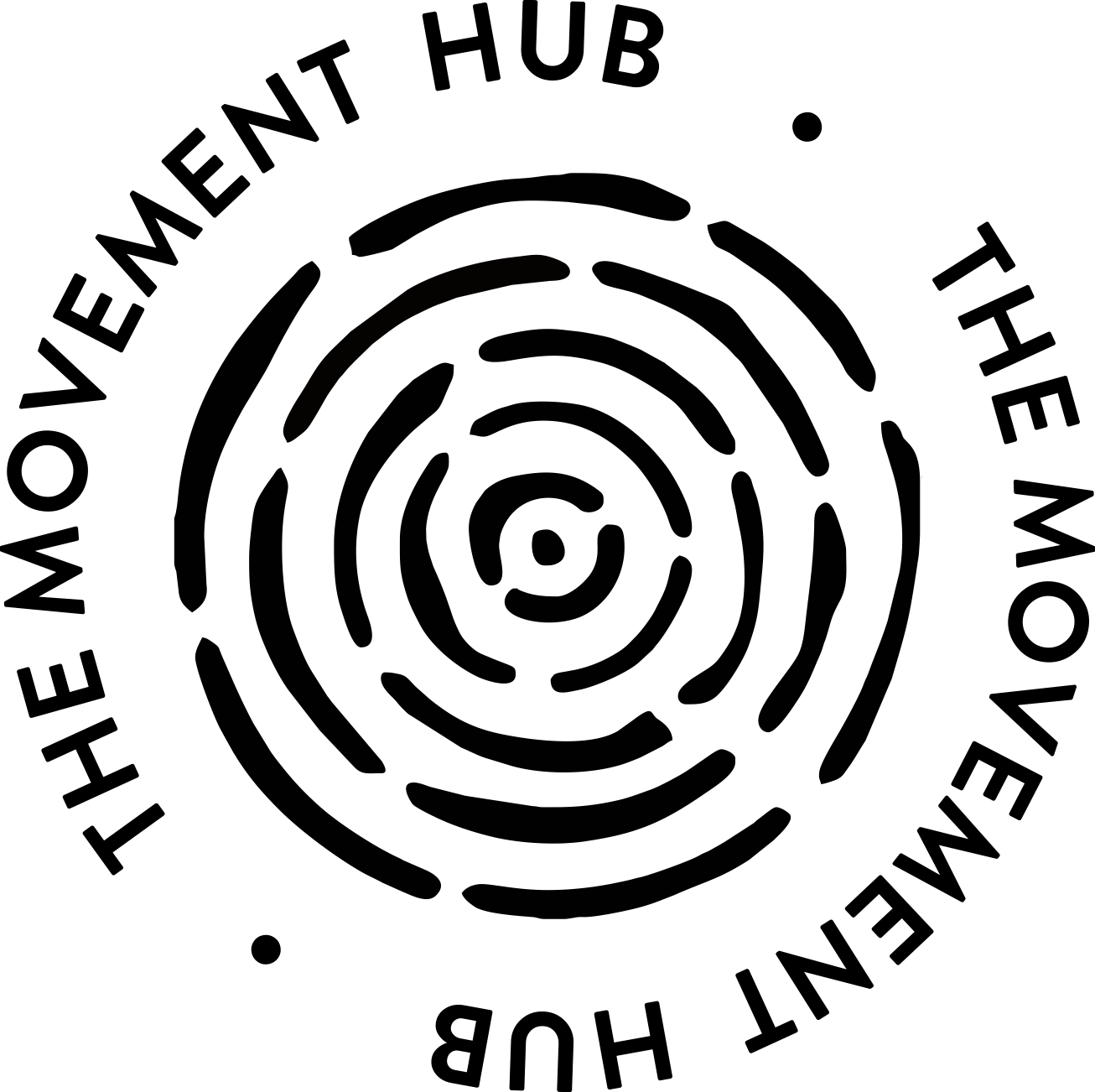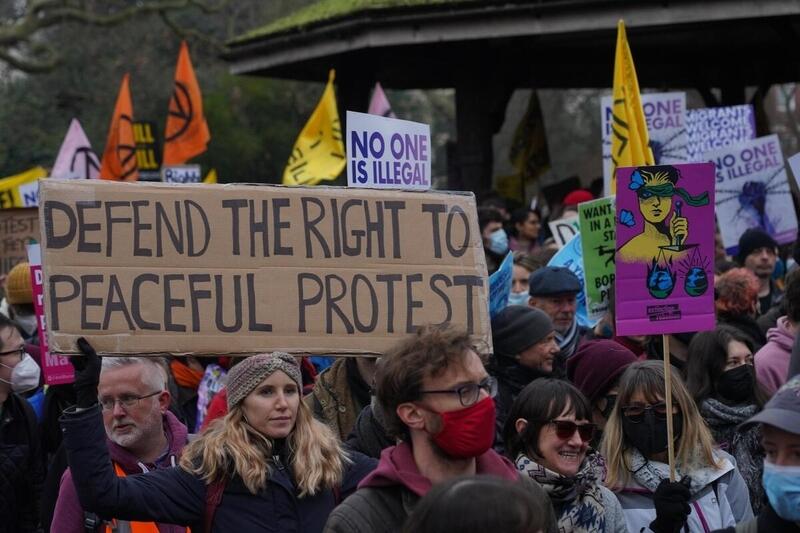When six anti-Shell activists were acquitted by a jury, it sent ripples across society, showing that climate action is widely supported and justified. In the words of one of the activists, ‘witnessing the courage the jury showed when they withstood the pressures of the legal system and found us all not guilty (and Shell guilty by implication) feels like a beginning.’
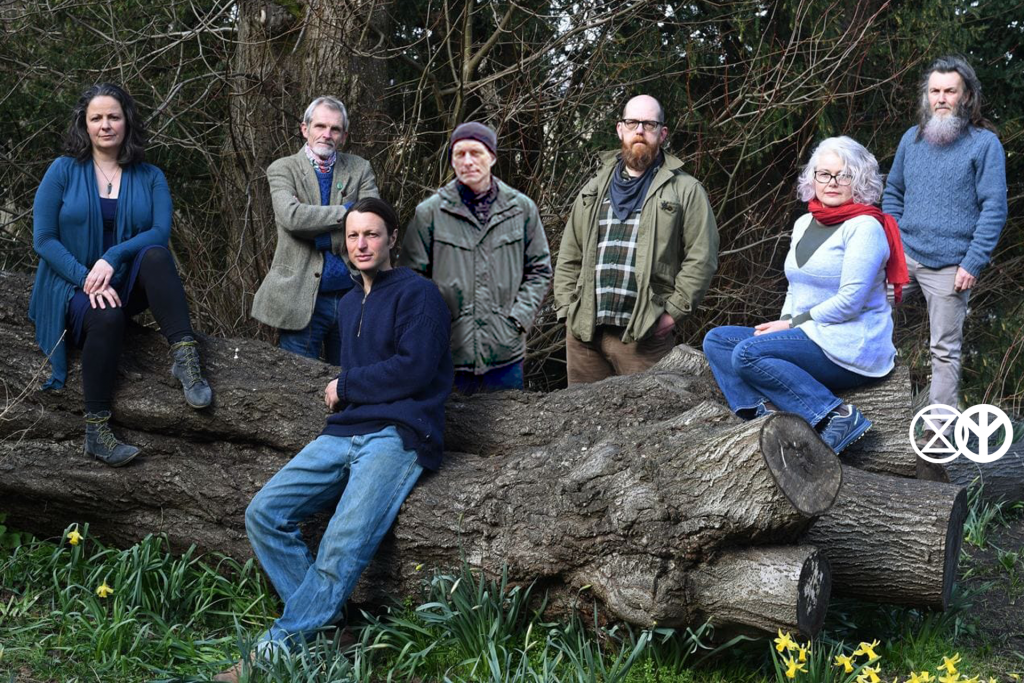
On 23 April 2021, a group of Extinction Rebellion (XR) activists were cleared of causing criminal damage to Shell’s London headquarters. While XR continues to garner widespread media attention for their actions, this case also marks a significant development in six committed individuals’ personal journeys as environmental activists.
The group of campaigners, which includes XR co-founders Simon Bramwell and Ian Bray, were found not guilty of causing criminal damage after spraying graffiti on and breaking the windows of Shell’s London HQ as part of wider demonstrations organised across London on 15 April 2019.
After requesting to see the juror’s oath again before making their decision, the jury at Southwark Crown Court acquitted Simon and Ian along with Jane Augsburger, Senan Clifford, David Lambert, and Sid Saunders of criminal damage, despite the judge telling the jury that they did ‘not have any defence in law’.
At a separate hearing on the 27th, Katerina Hasapopoulous, who pleaded guilty due to childcare commitments, was given a minimal 6-month conditional discharge in recognition of the not guilty verdict.
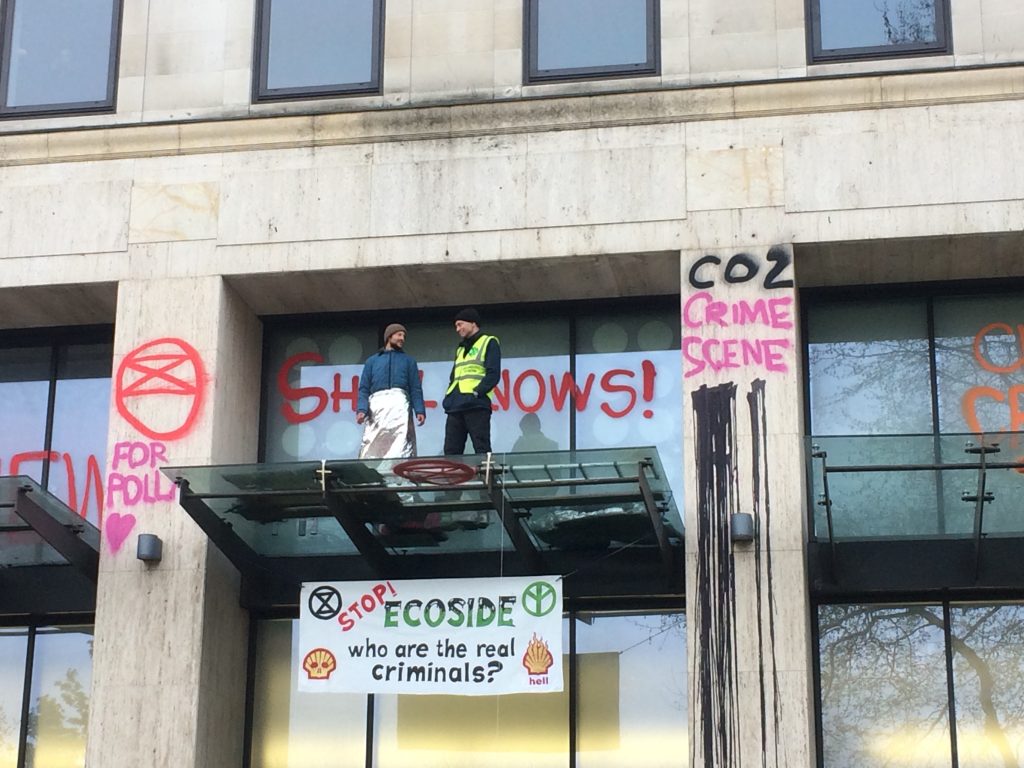
The six acquitted activists, who chose to represent themselves at trial, were moved by the experience of making their case directly to the jury. ‘We were all a bit nervous of letting go of the legal professionals who had supported us right up to the month before the trial’, David says, ‘but in the event, it felt empowering.’ For Jane, expressing the urgency and importance of their cause to the jury ‘from the gut’ was ‘incredible’: ‘It was actually the most moving and humbling thing I have ever done’, she says. ‘I bawled my eyes out, it’s such a tender subject and when you act on those very deep feelings and then are asked to speak for those acts, it’s so real.’
Despite the emotive atmosphere in the courtroom, the jury’s decision, David recalls, was far from predictable. ‘I think we did realise during the trial that some of the jurors were warming to us but there’s no way I was expecting the not guilty verdict.’ Senan describes how the jury’s decision is still ‘slowly sinking in’. ‘I’m aware of the relief I now feel not having to face the possible consequences a guilty verdict may have carried.’
The action against Shell was organised by the Stroud branch of XR in the lead up to the April 2019 demonstrations. Planning was already underway when David decided to participate. ‘I’d learnt about Shell in Nigeria and found it such a grotesque contrast to its benign imagery of my childhood, Shell Guide to British Birds etc., and the more I read about their funding of not only reckless levels of extraction but also the denial of the scientific evidence they knew to be true, the more I thought they were the right target.’
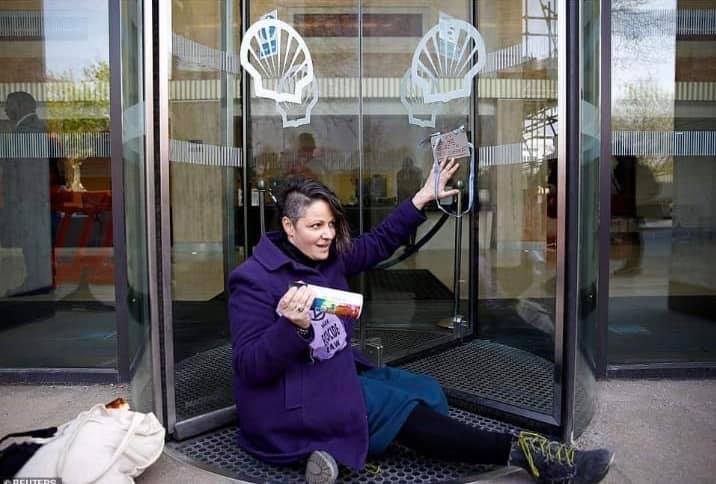
‘It felt completely natural to respond to the climate emergency in the way that I did, to break the windows’, Jane recalls. ‘At no point did I question it. I knew that this was the only way to make the changes required to influence leaders to change their course, their choices, and clearly we need to do much more.’
Jane remembers her decision to take an active role in standing against and raising awareness of the climate crisis as a ‘light-bulb moment’. Other members of the group concur, stressing the significance of learning about environmental issues in altering their view of the world. ‘I thought between pressure groups, scientists and a responsible government, global warming would be dealt with like the hole in the ozone layer’, David says. ‘It was 2018, and I was 59, when Gail Bradbrook’s Heading for Extinction talk and Jem Bendell’s Deep Adaptation Paper combined to blow me away and turn my life upside down.’
Ian speaks candidly of the personal consequences of engaging with environmental activism as a dedicated ‘life’s work’ which ‘forces you to deconstruct everything’. ‘It’s a new reality’, he says. ‘The implications of what it asks of you are broad and deep. Suddenly it uses up your social capital. At the moment you’re still a weirdo, you’re still in the minority.’
For these individuals, activism goes further than taking an interest in environmental matters outside the conventional workings of day-to-day life; it is a holistic commitment which requires a great deal of energy, resilience, and strength of conviction.
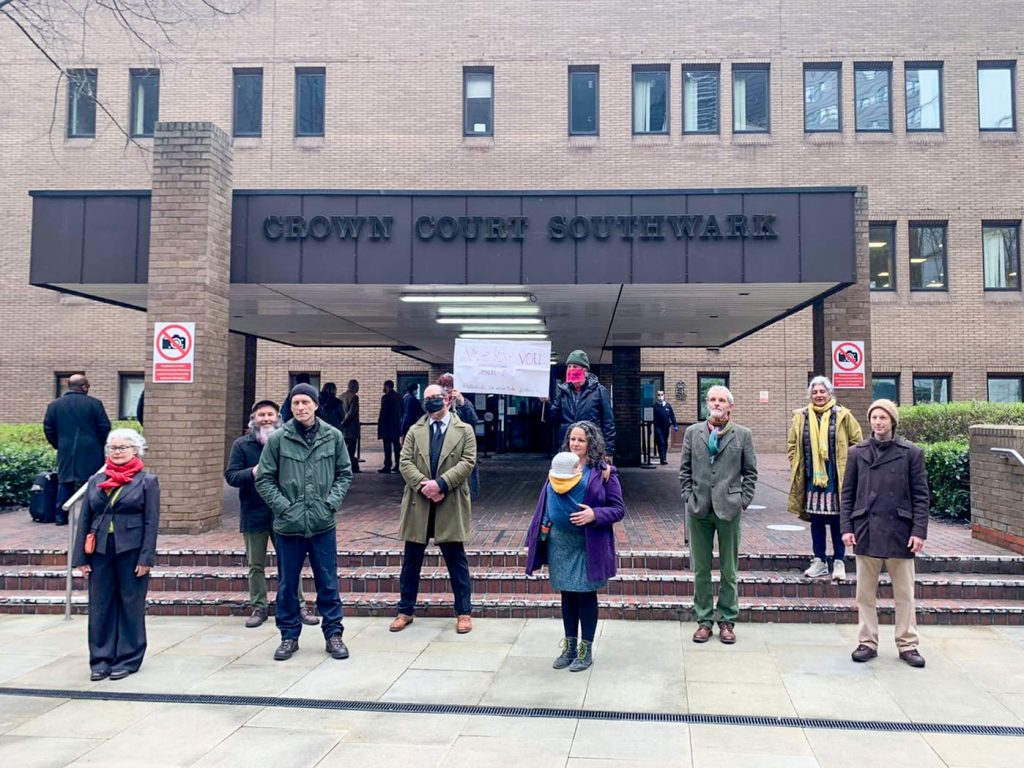
Some of the campaigners feel that the Shell case offers hope for greater public awareness of the urgency and gravity of the climate crisis as it progresses today. For Senan, the decision feels like the ‘beginning’ of a new phase: ‘Witnessing the courage the jury showed when they withstood the pressures of the legal system and found us all not guilty (and Shell guilty by implication) feels like a beginning – a beginning to more of the public seeing the injustices around us, and willing to say ‘no’… I look forward to more of that!’
For others, it is too soon to tell what the wider effects of this case might be, and monitoring future developments is more important than speculation. ‘It needs a longer perspective’, Ian says. ‘It’s only an example of one so it doesn’t mean that every jury is going to agree with this one. If we get one or two more acquittals then there’s a theme emerging, but it could just be a one off.’
As well as indicating hope for change, however, the activists involved in this case emphasise that their work is ongoing, and there is still more to do. David raises the point that XR’s activism, as well as being dedicated to developing the environmental consciousness of the general public, is carried out with the central aim of calling on the UK government to act. ‘I’d like to see the government lead a gentle but firm and relentless winding down of the consumerism that is destroying the environment and destroying lives – in the global south and in Europe and the UK’.
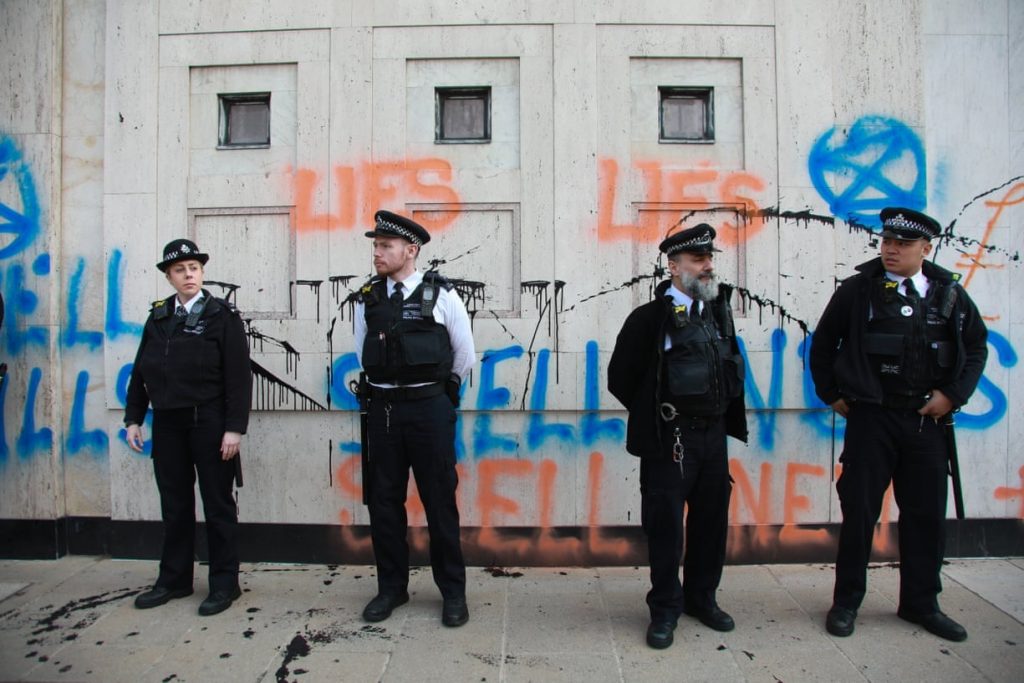
Jane feels that the case marks a ‘landmark victory’ for XR but stresses that, going forward, ‘we need to keep working on our relationships’. ‘Our climate activism is about making Black Lives Matter, the global south being the first to be affected’, she says. ‘We absolutely must be united in this.’
Cleared of committing criminal damage by a Crown Court jury, despite having ‘no defence in law’, the XR campaigners involved in the landmark Shell case remain steadfastly committed to their cause. While the potential impact of their acquittal on future XR cases remains a matter for speculation, the ‘not guilty’ verdict means that these activists will continue working to expose and oppose the ongoing environmental crisis with the confidence that people are willing to listen and act.
